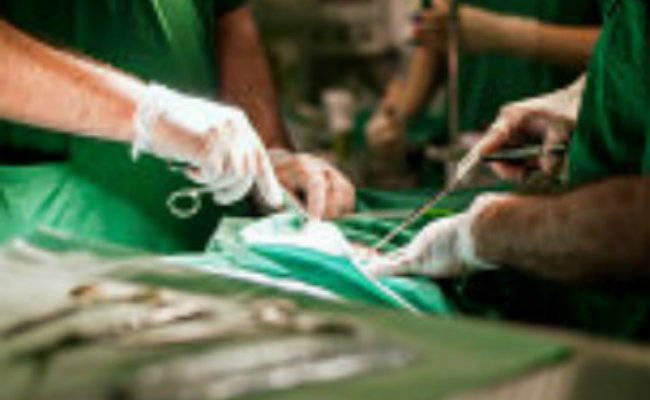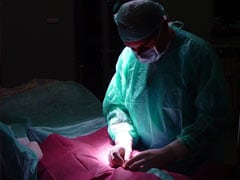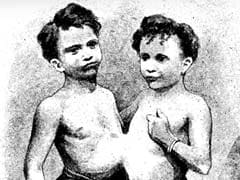While conjoined twins are known to occur in about every 2,00,000 births, craniopagus twins are rarer still, accounting for about only two per cent. Here's the report.

The Odisha government has sanctioned Rs 1 crore for the surgery at AIIMS.
HIGHLIGHTS
- Odisha government has sanctioned Rs 1 crore for the surgery at AIIMS
- The surgery is being performed in two stages
- The first phase took nearly 20 hours due to medical complications
Doctors from the neurosurgery, anesthesia and pediatrics departments met early Tuesday to discuss the matter, he added. The medical team treating the twins comprises 40 members, including a top surgeon from Japan. "A new bypass technique was used for the first time on the twins conjoined at head," said Deepak Gupta, paediatric neurosurgeon at AIIMS, part of the team.
The surgery for separation of conjoined twins Jaga and Balia is being performed in two stages. The first stage began at 9 a.m on Monday and was scheduled to take seven hours. However, the procedure took nearly 20 hours due to medical complications.
The two-and-a-half year-old craniopagus twins, or fused at the cranium, were brought to AIIMS on July 14, from Milipada village in Kandhamal district of Odisha. One of the major concerns during the operation was to prevent blood loss and handle intra-operative complications, which was successfully taken care of, said an AIIMS doctor. "The surgery was uneventful and there was no major blood loss or intra-operative problems."
In India, four in ten such births die when born and additional three die within 24-hours. Since 1952, 50 such attempts have been carried out across the world and the success rate is below 25%.
According to doctors, ahead of this complicated surgery, the twins had to undergo numerous tests. While conjoined twins are known to occur in about every 2,00,000 births, craniopagus twins are rarer still, accounting for about only two per cent.The Odisha government has sanctioned Rs 1 crore for the surgery at AIIMS.
Earlier, the twins had undergone medical check up at at SCB Medical College and Hospital in Cuttack.
With inputs from IANS
DoctorNDTV is the one stop site for all your health needs providing the most credible health information, health news and tips with expert advice on healthy living, diet plans, informative videos etc. You can get the most relevant and accurate info you need about health problems like diabetes, cancer, pregnancy, HIV and AIDS, weight loss and many other lifestyle diseases. We have a panel of over 350 experts who help us develop content by giving their valuable inputs and bringing to us the latest in the world of healthcare.














